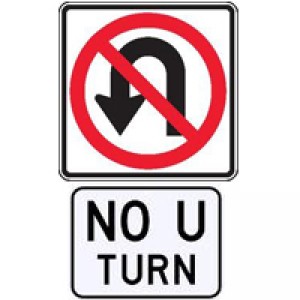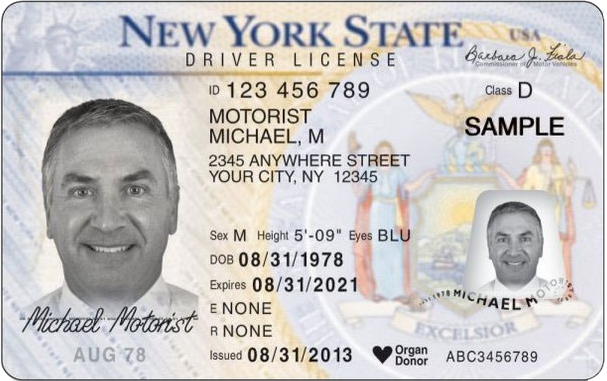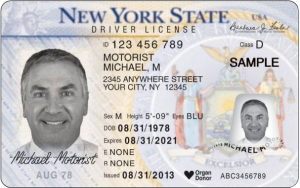by Anthony Sharnov | Nov 4, 2016 | Blog
Have you ever gotten an unfair speeding ticket? It’s an unfortunately common occurrence that can result in a lot of frustration and financial loss if you are not prepared to deal with it. Fortunately, you do not have to feel unprepared should you ever unfairly get a speeding ticket. By following a few of these simple steps, you can build a solid defense on how beating your speeding ticket.
Remember the Surrounding Conditions
When you get pulled over, always remember what the surrounding environment is like, as it can help you build up your case. Pay attention to the traffic flow, the signs on the roadway and the general condition of the roadway. If there are any other witnesses in the area, make sure that you can reach them if you need help corroborating your story. Pay attention to the weather as well, as that can be a valuable addition to your case.
Stay Calm and Professional
During the time of the trial itself, it is important for you to conduct yourself in a professional manner. Make a positive impression by presenting your case in a calm and collected way, and be sure to organize the facts in a way that follows a logical flow. Be respectful of all authority figures in the room, as that can be paramount to the success of your case.
Before the trial itself, check in with the court clerk and ask if the officer issuing the ticket is checked in as well. If the officer has not checked in, the chances of the ticket being dismissed are in your favor.
Keep Notes Nearby
If you feel yourself getting flustered during the case itself, remember to refer back to a notebook or some other small collection of notes to keep yourself focused. You want to present your facts in an organized and detailed way. If possible, check in with a lawyer before the trial for some advice on how to proceed during the case.
by Anthony Sharnov | May 26, 2016 | Blog
People always say that New York City is crazy, but until you’ve driven through the boroughs as a taxi driver or limousine driver, you don’t know exactly what they are talking about. Any driver can talk about a dozen different incidents which are all beyond belief, but the place where so many of the drivers get caught is when they are issued a Taxi and Limousine Commission ticket or when they are summoned to appear before the TLC.
Driving in New York City can be surprisingly fraught even if you have nerves of steel and a thorough knowledge of where everything in the city is. When you somehow managed to run into trouble with the TLC, the repercussions can be severe. Even if you get your charges exonerated, you will have wasted at least half a day dealing with them, and you will also be in a place where you may have had to pay a rough fine. If you have never driven in NYC before, you need to understand that the State of New York regulates its drivers a great deal more firmly than other areas. You may find yourself fined, suspended or even entirely banned from serving as a driver under the TLC rules.
If you are a driver in NYC, you know how fast life moves and how you have to keep up with it. However, even as you are trying to get this client to the airport and that client to the hopsital, you have to be very careful. A speeding charge can be fatal to your career. The same goes for DUI/DWI charges. These things can have serious consequences. They may affect your ability to work in the state in the future or to continue as you have been doing.
There are many things that can get you called up on charges of violating rules set down by the TLC. For example, you may be cited for not having the training or the license to operate your vehicle, or for soliciting a passenger that did not contact you first. You cannot use an electronic device while operating your vehcle and you cannot tamper with your interior lights or your meter. You cannot refuse to assist a disabled passenger and you cannot refuse a passenger based on their age, gender, sex or ability. These are all serious things that will get you called up to answer for yourself. Missing a summons to appear or ignoring a TLC ticket can also land you in hot water.
This is why so many NYC drivers retain the services of TLC violations lawyers. Anthony Sharnov is a TLC lawyer in New York specifically for this reason, and he is the attorney to call if you know that you are heading into trouble. Hiring a good lawyer is not an admission of guilt or a sign that you believe you were in the wrong. You are entitled to protect yourself, and hiring the right lawyer is just one of the best ways of doing it!
by Anthony Sharnov | Jan 17, 2015 | Blog
Although the presumption of innocent until proven guilty applies in traffic cases, if you’ve rear-ended somebody, it seems that the presumption suddenly disappears. In New York, following too closely is governed by NY VTL Section 1129(a). Its elements permit some very plausible defenses.
What is reasonable and prudent?
Police officers are rarely eyewitnesses to accidents that they write citations on. They’re almost always called to the scene. Section 1129(a) states that a driver “shall not follow another vehicle more closely than is reasonable and prudent.” The statute fails to define what reasonable and prudent following is though. Assuming the citing officer wasn’t an eyewitness to the accident, it’s impossible for he or she to state what was reasonable and prudent immediately before impact. They’d be relying on speculation and conjecture. Without an eyewitness testifying as to the speed and distance between the vehicles immediately before impact, speculation and conjecture are not sufficient evidence to support a guilty verdict.
Speed, traffic and highway condition
In determining what was reasonable and prudent, the court has to look at the speed of the vehicles, traffic conditions and roadway conditions. Again, these are variables that the officer can’t testify to at the time of the occurrence unless they were personally present. Speed, traffic conditions and road conditions change from minute to minute. The officer can testify to those elements at the time they arrived on the scene, but they can’t testify to those conditions at the time of the accident. Speculation and conjecture are relied on again.
Hearsay
Assuming there was an eyewitness to the accident, the law requires that they be in court to testify as to what they saw and heard. The officer can’t testify as to what they said. Fundamental due process provides that you have the right to cross examine any witnesses against you, but you can’t cross examine a witness that’s not present in court. The judge will sustain a timely hearsay objection.
If no accident
People are cited everyday for following too closely when there was no accident. In an accident case, the accident itself might be the best proof an officer has that a driver was following too closely. The distinguishing factor is that to write a citation for the subject offense with no accident, the officer will indeed be an eyewitness. Sometimes the officer even purports to be the victim of being followed too closely. Again, whether a driver was following too closely might turn on the subjective perception of the officer, but that officer might not know how the driver was prepared to stop if required to do so. There’s a strong basis for a speculation argument and a not guilty verdict.

by Anthony Sharnov | Jun 18, 2014 | Blog
 The laws governing driving a vehicle in the state of New York are very specific regarding the procedures which must be followed when making right turns, left turns or U-turns from the various lanes of traffic. When it comes to making U-turns, drivers in New York can only legally make a U-turn by using the furthermost left hand lane, driving their vehicle into the furthermost left lane in order for the U-turn to be considered legal.
The laws governing driving a vehicle in the state of New York are very specific regarding the procedures which must be followed when making right turns, left turns or U-turns from the various lanes of traffic. When it comes to making U-turns, drivers in New York can only legally make a U-turn by using the furthermost left hand lane, driving their vehicle into the furthermost left lane in order for the U-turn to be considered legal.
But for thousands of drivers on an annual basis, a nearby motorcycle cop or police officer in a cruiser who sees the driver making a U-turn judges that the driver did not follow the regulations as outlined by New York state law. The result is an unhappy driver who has been issued a traffic ticket stating that they have been observed in the act of making an improper turn. By not fighting an Improper U Turn ticket in New York, the driver is subject to receiving two demerit points on his driving record, which could ultimately lead to suspension of his driving privileges.
Smart drivers know the importance of consulting with an experienced New York traffic ticket attorney rather than facing traffic court alone to contest their Improper U Turn ticket NY. The best defense against an improper turn violation is to trust in the professional services of an experienced New York traffic ticket attorney who can expertly fight for your rights and avoid the hassle and expense of having an Improper U Turn ticket on your driving record in New York State.

by Anthony Sharnov | Apr 2, 2014 | Blog
 Even an excellent driver may find him or herself driving without a license in NY for a variety of reasons. World travelers, business travelers, or those with family emergencies may have been out of town and unable to renew their license by its expiration date. Unfortunately, driving without a license is a misdemeanor, according to the New York Vehicle and Traffic Code’s Section 509. This means there are several penalties that may be applied to those found guilty of such an offense, including:
Even an excellent driver may find him or herself driving without a license in NY for a variety of reasons. World travelers, business travelers, or those with family emergencies may have been out of town and unable to renew their license by its expiration date. Unfortunately, driving without a license is a misdemeanor, according to the New York Vehicle and Traffic Code’s Section 509. This means there are several penalties that may be applied to those found guilty of such an offense, including:
• Incarceration for 15 days or less, or
• A fine between $75 and $300, or
• Both jail time and a monetary fine.
Failing to renew a NY driver’s license within 2 months, or 60 days, of the expiration date carries a fine of $40.
Those who drive with a suspended license or whose license has been revoked face ever stiffer penalties, as these are more serious traffic offenses. In addition, taxi drivers and limousine chauffeurs may find themselves dealing with New York’s additional penalties for driving a vehicle for hire without a license.
Aggravated Unlicensed Operation
More serious still is an offense known as aggravated unlicensed operation. The New York Vehicle and Traffic Code’s Section 511 defines aggravated unlicensed operation as 1st, 2nd, or 3rd degree:
• 1st degree is the most serious offense, with more considerable fines. These violations are considered Class E felonies, and may stem from previous and repeat 2nd degree offenses, or driving while under the influence of a controlled substance or alcohol.
• 2nd degree violations encompass repeat offenses by those whose license has previously been suspended, failure to pay fines, missed court dates, or infractions related to alcohol consumption.
• 3rd degree offenses are the least serious and carry reduced fines. Those who drive a motor vehicle while knowingly having a suspended license or a revoked license may be charged with this violation.
Fines for aggravated unlicensed operation run the gamut from $500 to $5,000, depending on the type and severity of the violation. More serious offenses or repeat offenses may be punished with jail time and/or probation.
Viable Defenses for Driving Without A License In NY
The reasons for Driving Without A License In NY may be varied. Thus, there are viable defenses in some instances. Those charged with aggravated unlicensed operation of a vehicle may be excused from some or all related charges if they can prove they had a valid license, issued by another state or country, at the time the offense was allegedly committed.

 The laws governing driving a vehicle in the state of New York are very specific regarding the procedures which must be followed when making right turns, left turns or U-turns from the various lanes of traffic. When it comes to making U-turns, drivers in New York can only legally make a U-turn by using the furthermost left hand lane, driving their vehicle into the furthermost left lane in order for the U-turn to be considered legal.
The laws governing driving a vehicle in the state of New York are very specific regarding the procedures which must be followed when making right turns, left turns or U-turns from the various lanes of traffic. When it comes to making U-turns, drivers in New York can only legally make a U-turn by using the furthermost left hand lane, driving their vehicle into the furthermost left lane in order for the U-turn to be considered legal.
 Even an excellent driver may find him or herself driving without a license in NY for a variety of reasons. World travelers, business travelers, or those with family emergencies may have been out of town and unable to renew their license by its expiration date. Unfortunately, driving without a license is a misdemeanor, according to the New York Vehicle and Traffic Code’s Section 509. This means there are several penalties that may be applied to those found guilty of such an offense, including:
Even an excellent driver may find him or herself driving without a license in NY for a variety of reasons. World travelers, business travelers, or those with family emergencies may have been out of town and unable to renew their license by its expiration date. Unfortunately, driving without a license is a misdemeanor, according to the New York Vehicle and Traffic Code’s Section 509. This means there are several penalties that may be applied to those found guilty of such an offense, including: